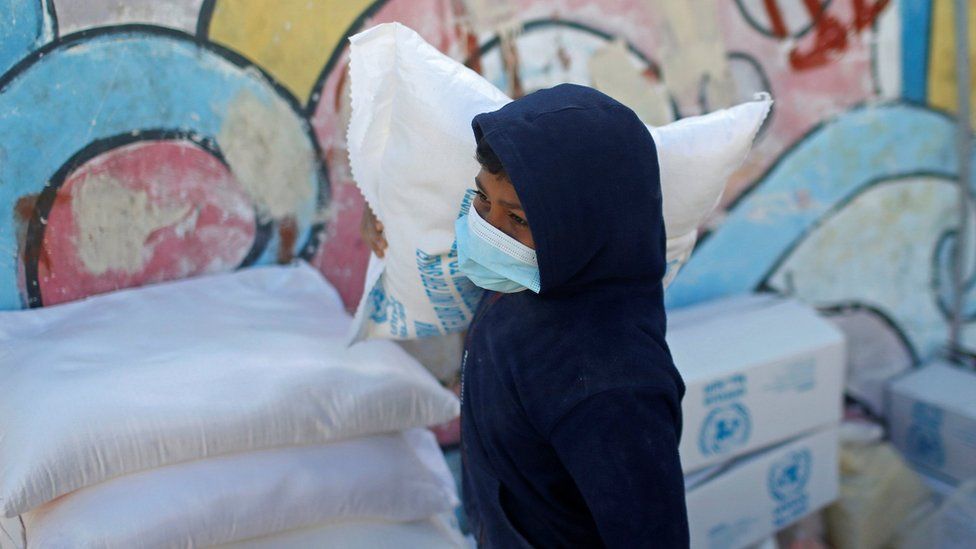Updates & Press
Featured | April 9, 2021
Weekly Humanitarian News Digest – April 9
Author | MedGlobalComms

Each week, we highlight the latest news related to the humanitarian and health crises in our countries of operation: Bangladesh/ Myanmar, Colombia/ Venezuela, Gaza/ Palestinian Territories, Lebanon, Pakistan, Sudan, Syria, and Yemen. For more frequent updates, make sure to follow us on Facebook, Instagram, and Twitter.
Cover Image: Reuters
Latest News for April 2 – April 9, 2021
Bangladesh/ Myanmar
On April 2, a fire near Kutupalong refugee camp in Cox’s Bazar killed three Rohingya men.The week prior, a deadly blaze at Balukhali camp killed at least 11 people and displaced more than 45,000 refugees. The refugee camps in Cox’s Bazar have extremely high population densities with an average of 40,000 people per square kilometer. Many homes and other buildings are constructed out of bamboo, which is highly flammable and allows fires to spread quickly. Since 2017, Cox’s Bazar’s fire services have reported 73 fires in the camps and the deaths of at least 25 refugees. (Deutsche Welle)
Colombia/ Venezuela
Colombia is extending COVID-19 restrictions across the country in response to a surge in cases and admissions to intensive care units. Curfews, which will vary from city to city based on ICU occupancy, will be in place until April 19. The government has reported more than 2.4 million cases of COVID-19 and nearly 64,000 deaths since the pandemic began. The vaccination campaign that began in February has administered around 2.4 million doses thus far. (Al Jazeera)
Gaza/ Palestinian Territories
The United States plans to restore $235 million in funding to Palestinians after funding was cut in 2018. The UN Relief and Works Agency for Palestine Refugees, which provides healthcare, education, and social services to 5.7 million Palestinian refugees, will receive $150 million. The remaining funds will go towards economic and development assistance and peacebuilding efforts. The United States has also previously provided $15 million in COVID-19 assistance. (BBC News)
Lebanon
Refugees and migrant workers in Lebanon, representing 30% of the population, have been drastically underimmunized by Lebanon’s vaccination program. Despite the fact that death rates among Palestinian and Syrian refugees are three and four times higher than the national average, respectively, only 2.86% of people who have received vaccines are non-Lebenese. Lebanon’s official vaccination plan covers everyone in the country, but in addition to barriers in accessing information, many refugees do not trust the government and are worried about registering. An estimated 80% of 1.5 million Syrian refugees in Lebanon lack legal status and are concerned they could face harassment, arrest, or deportation if they sign up to receive a vaccine. (Human Rights Watch)
Pakistan
Pakistan’s private sector has begun importing and selling COVID-19 vaccines to primarily young Pakistanis not yet eligible under the country’s vaccination campaign. The government is continuing to provide free vaccinations to health care workers and people above the age of 50. Many companies are also purchasing their own vaccines to immunize staff. The number of people in critical care has risen to 3,568, the highest level since the pandemic began. Pakistan has reported 687,908 cases and 14,778 deaths. (Reuters)
Sudan
At least 87 people have been killed and 191 injured by violent attacks in West Darfur’s capital El Geneina. The violence was sparked by a shooting on April 3 in a displaced persons camp that led to clashes between the non-Arab Masalit and Arab Rizeigat tribes. Thousands of people are homeless after their camp was burned down and several health facilities have been attacked. In response to the deteriorating security situation, the UN suspended humanitarian activities in the city, affecting more than 700,000 people across the region. (Al Jazeera)
Syria
Syria is closing schools and universities in response to a surge in COVID-19 cases. The true number of COVID-19 cases in Syria is unknown due to extremely limited testing. In March, state media reported that the intensive care units dedicated to treating COVID-19 patients in Damascus had all reached full capacity. The WHO has stated it will begin overseeing a COVID-19 vaccination campaign in April with the goal of immunizing 20% of Syria’s population by the end of 2021. (Associated Press)
Yemen
According to the UN, an estimated 13.5 million Yemenis are suffering from food insecurity. By June, the number is expected to increase by 3 million due to reductions in funding to aid organizations which provide food. Around 3.6 million people face emergency levels of food insecurity and 400,000 children are at risk of dying of hunger. Yemen’s weak health system is also unable to handle the expected rise in health problems caused and exacerbated by prolonged hunger. (Forbes India)


